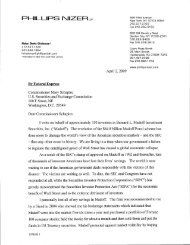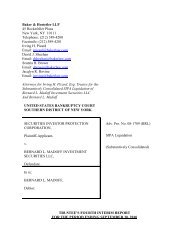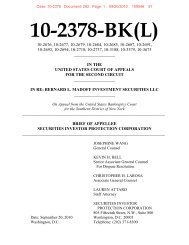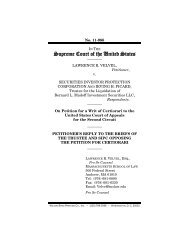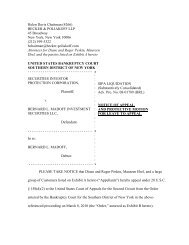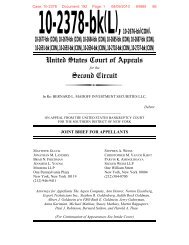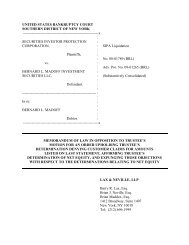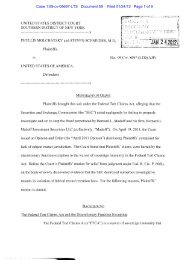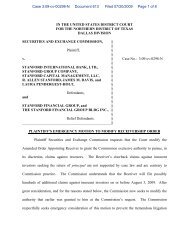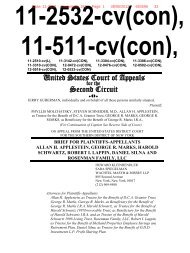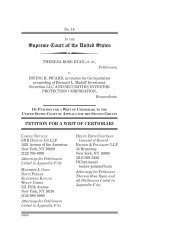Davis Polk & Wardwell LLP 450 Lexington Avenue New York, New ...
Davis Polk & Wardwell LLP 450 Lexington Avenue New York, New ...
Davis Polk & Wardwell LLP 450 Lexington Avenue New York, New ...
Create successful ePaper yourself
Turn your PDF publications into a flip-book with our unique Google optimized e-Paper software.
outcome. “[E]quity in the law is the consistent application of legal rules. The definition<br />
of inequity is unequal application of norms. The bankruptcy law treats pre-bankruptcy<br />
claims of the same class equally. When one claimant gets treatment that is denied to<br />
others, they have been treated inequitably.” Boston & Maine Corp. v. Chicago Pacific<br />
Corp., 785 F.2d 562, 566 (7th Cir. 1986) (emphasis in original). Indeed, upending the<br />
lives of innocent customers in a manner totally inconsistent with years of legitimate<br />
expectations is the essence of inequity. 12<br />
2. Claiming That All Customers Are Guilty Is No Justification<br />
The Trustee and SIPC also argue that by permitting Madoff to exercise discretion<br />
over their investments, the customers became liable for his fraud, and therefore the<br />
customers’ contracts with BLMIS are void. (Tr. Br. at 48-49; SIPC Br. at 27-33.) The<br />
Trustee’s and SIPC’s argument rests on a distortion of the holding in In re Adler,<br />
Coleman Clearing Corp., 263 B.R. 406 (S.D.N.Y. 2001). The critical fact in Adler,<br />
Coleman was that the debtor was an innocent, third-party victim of a fraud perpetrated by<br />
certain brokers and their complicit customers. See In re Adler, Coleman, 263 B.R. at<br />
440, 442, 445, 462-64. Here, by contrast, BLMIS itself defrauded the customers. The<br />
Trustee’s argument – made while standing in BLMIS’s shoes – that BLMIS owes the<br />
customers less than the amount reflected on their account statements precisely because<br />
BLMIS was defrauding them is absurd on its face and contrary to settled law. 13<br />
<strong>New</strong><br />
12 The Trustee’s after-the-fact, ad hoc approach to determining “net equity” directly conflicts with<br />
SIPA’s purpose of promoting investor confidence in the nation’s securities markets, because the approach<br />
permits no certainty about its future application. See, e.g., Central Bank of Denver, N.A. v. First Interstate<br />
Bank of Denver, N.A., 511 U.S. 164, 188-89 (1994) (observing that “shifting” legal standards that lack<br />
“certainty and predictability” can “exact[] costs that may disserve the goals of fair dealing and efficiency in<br />
the securities markets”).<br />
13 The proposition that “the guilty party cannot take advantage of his own fraud to avoid his<br />
obligation under the contract should the innocent party choose to enforce it” is “so elementary that a<br />
11



